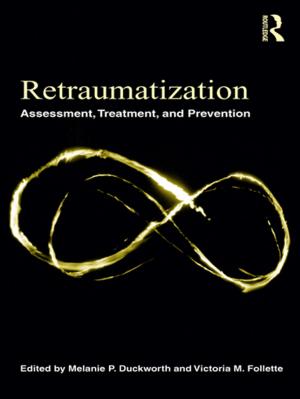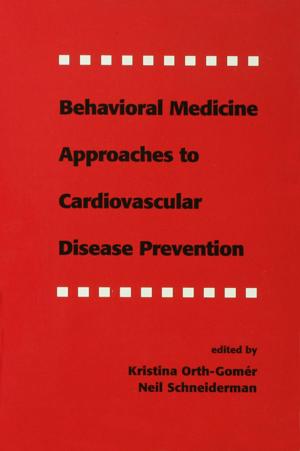NCLEX Psychiatric Nursing
Exam Preparation Plus 280 Questions/Answers
Nonfiction, Health & Well Being, Medical, Nursing, Mental Health| Author: | Mike Rosagast | ISBN: | 1230000158269 |
| Publisher: | Nclex Masters | Publication: | August 7, 2013 |
| Imprint: | Language: | English |
| Author: | Mike Rosagast |
| ISBN: | 1230000158269 |
| Publisher: | Nclex Masters |
| Publication: | August 7, 2013 |
| Imprint: | |
| Language: | English |
Intervention of Psychiatric Patients.- NCLEX Exam Preparation for Psychiatric Nursing exam Plus 280 Psychiatric questions, answers and rationales. Buying this book grants you FREE access to www.Nclex-masters.net online NCLEX preparation for unlimited time.
This book focuses on nursing psychiatric intervention standards as demanded on the NCLEX nursing exam.
Like any other interventions where the nurse looks after the physical integrity of the patient, psychiatric intervention follow the same principles of safe and effective intervention. Remember to identify the central idea of the question, determining which of the process of nursing intervention is being described in the question and how it relates to answers on one of the nursing processes.
The intervention of psychiatric patients does not differ from the intervention of non-psychiatric patients on the application of the principles of safety and effective intervention. The difference is mainly in the identification of symptoms and signs which can be seen as less objective by lack of quantification processes, etc. Exact degrees of depression or other conditions do not exist; however, psychiatrists and psychologists use other parameters to establish the intensity of conditions by incorporating a medical language and terminology standards to this practice.
Become familiar with the language use to describe conditions; know the symptom and signs. Treatments, and drug administration and commonly used drugs, and common language used to assess, diagnose and/or evaluate patients. Refer to guidelines by the American Psychiatric Associations or to the Diagnostic and Statistical Manual of Mental Disorders IV –fourth edition- presenting diagnostic criteria widely used in psychiatry medicine evidence based. Your best source to get ready for psychiatric nursing.
Below are the classification of common mental disorders. All nurses taking the NCLEX must make a real effort to master the information regarding these mental disorders.? The psychiatric nursing questions on the NCLEX exam range between 9 and a 13% of the 75 or 80 questions, or roughly between 10 and 12 nursing psychiatric questions. To fail 5 of 10 means to fail 50% of the psychiatric questions and the NCLEX algorithm is programmed to find about your interventions skills in all areas, including psychiatry nursing.
Can you identify a psychiatric assessment from a psychiatric diagnostic, plan, implement and evaluate the outcome on any of these common mental disorders? If you don’t feel confident you can, it’s suggested you refresh your Psych 101 and beyond. Most psychiatric conditions are idiopathic and practitioners in most cases only do inferences about the patho- physiology of the same; however, we know now that most mental disorders are classed are neurobiological, psychological or phsycho-social dysfunctions where one syndrome may have several etiologies.
Like any other skills being tested for, the NCLEX software will present the examinee with several questions at several levels of difficulty; if you passed a question the algorithm of the program will increase its difficulty until it proves your skills level.
Psychiatry nursing is considered the Achille’s heel of examinees; a great number of examinees do not pass this area of testing simply because didn’t prepare for psychiatric nursing questions, nor have been expose to psychiatric nursing prior to the NCLEX exam. The nursing process applies to all patients, including of course psychiatric clients. Become familiar with the application of all nursing processes as you know now from a psycho-social view. Assessing the psycho-social integrity of a patient takes training a conscious effort to recognize symptoms and signal, etc.
Intervention of Psychiatric Patients.- NCLEX Exam Preparation for Psychiatric Nursing exam Plus 280 Psychiatric questions, answers and rationales. Buying this book grants you FREE access to www.Nclex-masters.net online NCLEX preparation for unlimited time.
This book focuses on nursing psychiatric intervention standards as demanded on the NCLEX nursing exam.
Like any other interventions where the nurse looks after the physical integrity of the patient, psychiatric intervention follow the same principles of safe and effective intervention. Remember to identify the central idea of the question, determining which of the process of nursing intervention is being described in the question and how it relates to answers on one of the nursing processes.
The intervention of psychiatric patients does not differ from the intervention of non-psychiatric patients on the application of the principles of safety and effective intervention. The difference is mainly in the identification of symptoms and signs which can be seen as less objective by lack of quantification processes, etc. Exact degrees of depression or other conditions do not exist; however, psychiatrists and psychologists use other parameters to establish the intensity of conditions by incorporating a medical language and terminology standards to this practice.
Become familiar with the language use to describe conditions; know the symptom and signs. Treatments, and drug administration and commonly used drugs, and common language used to assess, diagnose and/or evaluate patients. Refer to guidelines by the American Psychiatric Associations or to the Diagnostic and Statistical Manual of Mental Disorders IV –fourth edition- presenting diagnostic criteria widely used in psychiatry medicine evidence based. Your best source to get ready for psychiatric nursing.
Below are the classification of common mental disorders. All nurses taking the NCLEX must make a real effort to master the information regarding these mental disorders.? The psychiatric nursing questions on the NCLEX exam range between 9 and a 13% of the 75 or 80 questions, or roughly between 10 and 12 nursing psychiatric questions. To fail 5 of 10 means to fail 50% of the psychiatric questions and the NCLEX algorithm is programmed to find about your interventions skills in all areas, including psychiatry nursing.
Can you identify a psychiatric assessment from a psychiatric diagnostic, plan, implement and evaluate the outcome on any of these common mental disorders? If you don’t feel confident you can, it’s suggested you refresh your Psych 101 and beyond. Most psychiatric conditions are idiopathic and practitioners in most cases only do inferences about the patho- physiology of the same; however, we know now that most mental disorders are classed are neurobiological, psychological or phsycho-social dysfunctions where one syndrome may have several etiologies.
Like any other skills being tested for, the NCLEX software will present the examinee with several questions at several levels of difficulty; if you passed a question the algorithm of the program will increase its difficulty until it proves your skills level.
Psychiatry nursing is considered the Achille’s heel of examinees; a great number of examinees do not pass this area of testing simply because didn’t prepare for psychiatric nursing questions, nor have been expose to psychiatric nursing prior to the NCLEX exam. The nursing process applies to all patients, including of course psychiatric clients. Become familiar with the application of all nursing processes as you know now from a psycho-social view. Assessing the psycho-social integrity of a patient takes training a conscious effort to recognize symptoms and signal, etc.















